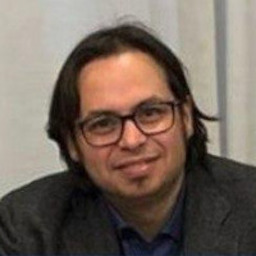Angelo Ciaramella

Full Professor – DiST
University of Naples “Parthenope”
Keynote
Soft Computing in data integration and decision-making
Nowadays, data-driven decision-making methodologies are influencing many aspects of society. In the era of Big Data, data is generated, collected, and analyzed on a large scale.
For example, in biological and biomedical fields, high throughput methods acquire a large number of molecular parameters, collected in “omics” datasets, by a single experiment. Recently, a number of studies pointed out the best performance comes from the integration of multi-omics data. Moreover, record linkage aims to identify records from multiple data sources that refer to the same entity in the real world.
On the other hand, Soft computing is a set of algorithms, including neural networks, fuzzy logic, and evolutionary algorithms that are tolerant of imprecision, uncertainty, partial truth, and approximation, with a great rule in decision support systems.
This talk explores the progress made in decision-making, data integration, and record linkage in addressing novel challenges by using Soft Computing methodologies and identifies a range of open challenges for the community.
Short bio
Angelo Ciaramella received, in 1998, the Laurea degree (cum laude) in Computer Science from the University of Salerno and in 2002 he received a Ph.D. from the same University. From 2021 he is Full Professor at the Department of Science and Technology of the University of Naples “Parthenope” where he serves as President of the Course of Study in Computer Science (informatica.uniparthenope.it), Director of the Apple Foundation Program Parthenope (iosdeveloperacademy.uniparthenope.it), Head of the Computational Intelligence & Smart Systems Lab (cisslab.uniparthenope.it), Director of the local nodes of the CINI Big Data, Digital Health and InfoLife national laboratories. The main research interests of Angelo Ciaramella are Computational Intelligence, Machine Learning and Data Mining. In particular, he has been interested in statistical, Machine Learning and Deep Learning approaches for Blind Source Separation, Sparse Coding, Compressive Sensing and Dictionary Learning, for signal processing (i.e., audio, streaming, astrophysical and geological) and feature extraction. He has been working on fuzzy and neuro-fuzzy systems for structured and unstructured data. He is interested in developing Fuzzy Decision Support Systems in risk assessment. He also studied and developed new methodologies for pre-processing, clustering, visualization, and assessment of biological, air quality and social network data (e.g., twitter). He is also interested in signal processing by Deep Learning methodologies in Brain Computer Interfaces. He is associate editor of international journals (i.e., Information Sciences, Soft Computing (area associate editor), International Journal on Artificial Intelligence Tools), he has been co-editor of books and guest editor of Special Issues. He is in the steering committee of WILF conference, has been co-general Chair (ITADATA2023, WILF2021, IDCS2019), technical chair (CIBB2018), organizer and chair of Special Sessions (e.g., EAIS, CIBB, WIRN, Fuzz-IEEE, NAFIPS), and he is in the Program Committee (e.g., CIBB, EAIS, Fuzz-IEEE, WIRN, GCIS, ICIC, AI2IA) of international conferences. He is a Senior Member of IEEE and member of IEEE Computational Intelligence Society, IEEE Signal Processing, SIREN, GIRPR and AIxIA.
Specialties:
- Computational Intelligence
- Machine Learning
- Deep Learning
- Signal Processing
- Computer Visio
- Data Mining
- Bioinformatics
- Data Analysis in Astrophysics, Geology, and Biology
